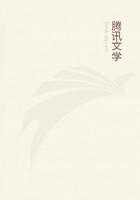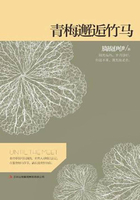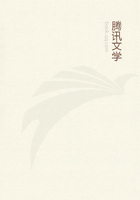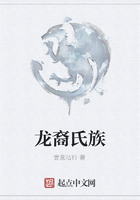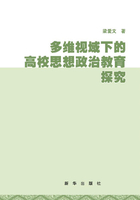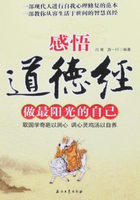No doubt, any reasonably skilful economist any certified accountant of economic theory -- could successfully question the goodness of this characterisation of corporate capital. It is, in fact, not such a description as is commonly met with in those theories of ownership and investment that trace back to the formal definitions of Ricardo and Adam Smith. Nor is this description of latter-day facts here set down as a formal definition of corporate capital and its uses; nor is it designed to fit into that traditional scheme of conceptions that still holds the attention of the certified economists. Its aim is the less ambitious one of describing, in a loose and informal way, what is the nature and uses of this corporate capital and its ownership, in the apprehension of the common man out of doors. He is not so familiar with the recondite wisdom of the past, or with subtle definitions, other than the latter-day subtleties of the market, the crop season, the blast-furnace and refinery, the internal-combustion engine, and such like hard and fast matters with which he is required to get along from day to day. The purpose here is only to bring out, without undue precision, what these interesting phenomena of capital, investment, fixed charges, and the like, may be expected to foot up to in terms of tangible performance, in the unschooled reflections of the common man, who always comes in as "the party of the second part" in all these manoeuvres of corporation finance. He commonly has no more than a slender and sliding grasp of those honorable principles of certified make-believe that distinguish the modern point of view in all that relates to property and its uses; but he has had the benefit of some exacting experience in the ways of the new order and its standards of reckoning. By consequence of much untempered experience the common man is beginning to see these things in the glaring though fitful light of that mechanistic conception that rates men and things on grounds of tangible performance, --
without much afterthought. As seen in this light, and without much afterthought, very much of the established system of obligations, earnings, perquisites and emoluments, appears to rest on a network of make-believe. Now, it may be deplorable, perhaps inexcusable, that the New Order in industry should engender habits of thought of this unprofitable kind; but then, after all, regrets and excuses do not make the outcome, and with sufficient reason attention today centers on the outcome.
To the common man who has taken to reckoning in terms of tangible performance, in terms of man power and material resources, these returns on investment that rest on productive enterprise as an overhead charge are beginning to look like unearned income. Indeed, the same unsympathetic preconception has lately come in for a degree of official recognition. High officials who are presumed to speak with authority, discretion and an unbiassed mind have lately spoken of incomes from investments as "unearned incomes," and have even entertained a project for subjecting such incomes to a differential rate of taxation above what should fairly be imposed on "earned incomes,"
All this may, of course, be nothing more than an unseasonable lapse of circumspection on the part of the officials, who have otherwise, on the whole, consistently lived up to the best traditions of commercial sagacity; and a safe and sane legislature has also canvassed the matter and solemnly disallowed any such invidious distinction between earned and unearned incomes. Still, this passing recognition of unearned incomes is scarcely less significant for being unguarded; and the occurrence lends a certain timeliness to any inquiry into the source and nature of that net product of industry out of which any fixed overhead charges of this kind are drawn.
To come to an understanding of the source and origin of this margin of disposable revenue that goes to the earnings of corporate capital, it is necessary to come to an understanding of the industrial system out of which the disposable margin of revenue arises. Productive industry yields a margin of net product over cost, counting cost in terms of man power and material resources; and under the established rule of self-help and free bargaining as it works out in corporation finance, this margin of net product has come to rest upon productive industry as an overhead charge payable to anonymous outsiders who own the corporation securities.
There need be no question of the equity of this arrangement, as between the men at work in the industries and the beneficiaries to whom the overhead charge is payable. At least there is no intention here to question the equity of it, or to defend the arrangement against any question that may be brought.
It is also to be remarked that the whole arrangement has this appearance of gratuitous handicap and hardship only when it is looked at from the crude ground level of tangible performance.
When seen in the dry light of the old and honest principles of self-help and equal opportunity, as understood by the substantial and well-meaning citizens, it all casts no shadow of iniquity or inexpediency.
So, without prejudice to any ulterior question which may be harbored by one and another, the question which is here had in mind is quite simply as to the production of this disposable margin of net product over human cost. And to pass muster today, any attempted answer will be required to meet that exacting and often inconvenient insistence on palpable fact which is of the essence of the new order of knowledge and belief. It is necessary to reach an understanding of these things in terms of tangible performance, in such terms as are germane to that new order of knowledge and belief out of which the perplexity arises, rather than in those terms of equitable imputation that lie at the root of the certified economic doctrines and of corporation finance.

